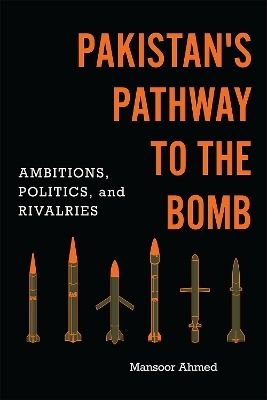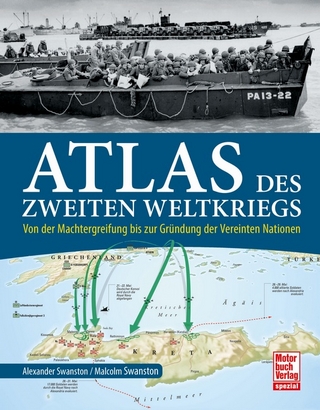
Pakistan's Pathway to the Bomb
Georgetown University Press (Verlag)
978-1-64712-231-7 (ISBN)
Pakistan’s pathway to developing nuclear weapons remains shrouded in mystery and surrounded by misconceptions. While it is no secret why Pakistan became a nuclear power, how Pakistan became a nuclear state has been obscured by mythmaking.
In Pakistan’s Pathway to the Bomb, Mansoor Ahmed offers a revisionist history of Pakistan’s nuclear program and the bureaucratic politics that shaped its development from its inception in 1956 until the 1998 nuclear tests. Drawing on elite interviews and previously untapped primary sources, Ahmed offers a fresh assessment of the actual and perceived roles and contributions of the scientists and engineers who led the nuclear program. He shows how personal ambitions and politics within Pakistan’s strategic enclave generated inter-laboratory competition in the nuclear establishment, which determined nuclear choices for the country for more than two decades. It also produced unexpected consequences such as illicit proliferation to other countries largely outside of the Pakistani state’s control.
As Pakistan’s nuclear deterrent program continues to grow, Pakistan’s Pathway to the Bomb provides fresh insights into how this nuclear power has evolved in the past and where it stands today. Scholars and students of security studies, Pakistani history, and nuclear proliferation will find this book to be invaluable to their understanding of the country’s nuclear program, policies, and posture.
Mansoor Ahmed is a senior fellow at the Center for International Strategic Studies in Islamabad, Pakistan. He is a former Stanton Nuclear Security junior faculty fellow (2015–16) and postdoctoral research fellow (2016–18) with the International Security Program and Managing the Atom project at the Harvard Kennedy School’s Belfer Center. He also served as a lecturer in the Department of Defense and Strategic Studies, Quaid-i-Azam University, Islamabad, from 2011–15.
Introduction
1. Bureaucratic Inertia and the Nuclear Option
2. The Triumph of the Mythmakers
3. Facing the Smiling Buddha
4. The Enticing Centrifuge
5. Procurements and Politics of the Special Project
6. Trials, Tussles, and Uranium Enrichment
7. Achieving the Plutonium Ambition
8. Building the Nuclear Device
9. Competition, Command and Control, and the Nuclear Tests
Conclusion
Appendix 1: Major Figures in Pakistan’s Nuclear Establishment, 1960–2001
Appendix 2: The Nuclear Fuel Cycle and Pakistan’s Nuclear Weapons Program, 1972–2001
Appendix 3: Note on “Nuclear Danger from India” submitted to President Ayub Khan by Munir A. Khan and Abdus Salam, Summer 1967
Appendix 4: Newsletter of the Pakistan Atomic Energy Commission published in May 1974, a few days after India’s first nuclear test
Appendix 5: A.Q. Khan’s handwritten private letter to Munir A. Khan, June 1976, on the status of the centrifuge project before he took over as project director a month later
Selected Bibliography
Index
| Erscheinungsdatum | 17.03.2022 |
|---|---|
| Reihe/Serie | South Asia in World Affairs series |
| Zusatzinfo | 4 Figures; 1 Tables, unspecified |
| Verlagsort | Washington, DC |
| Sprache | englisch |
| Maße | 152 x 229 mm |
| Gewicht | 408 g |
| Themenwelt | Natur / Technik ► Fahrzeuge / Flugzeuge / Schiffe ► Militärfahrzeuge / -flugzeuge / -schiffe |
| Sozialwissenschaften ► Politik / Verwaltung | |
| ISBN-10 | 1-64712-231-7 / 1647122317 |
| ISBN-13 | 978-1-64712-231-7 / 9781647122317 |
| Zustand | Neuware |
| Informationen gemäß Produktsicherheitsverordnung (GPSR) | |
| Haben Sie eine Frage zum Produkt? |
aus dem Bereich


